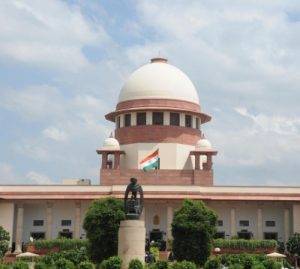Courts empowered to revise arbitral awards: Supreme Court

New Delhi: In a significant verdict, the Supreme Court Wednesday held that courts could modify arbitral awards under the 1996 law on arbitration and conciliation.
In a 4:1 majority ruling, Chief Justice Sanjiv Khanna aside from Justices B R Gavai, Sanjay Kumar and Augustine George Masih held under certain circumstances, the arbitral awards could be modified by using provisions of the Arbitration and Conciliation Act, 1996.
The verdict will impact domestic and international arbitral awards in commercial disputes.
Pronouncing the judgement, the CJI, however, ordered courts to exercise “caution” in modifying arbitral awards.
“The special powers of the Supreme Court under Article 142 of the Constitution can be applied to modify awards. But this power must be exercised with great caution within the limits of the Constitution,” he said.
The CJI added, “The question of law is answered to say that the court has limited power to modify arbitral awards under Sections 34 and 37 of the Arbitration and Conciliation Act, 1996.”
Justice K V Viswanathan, the lone dissenting judge, held that courts couldn’t alter arbitral awards.
The majority verdict referred to circumstances in which the “limited power” to modify arbitral awards could be exercised by the courts.
“When the award is severable by separating the invalid portion from the valid portion of the award,” the CJI said, “the power can be exercised to correct any clerical, computational or typographical errors which appear erroneous on the face of the record”.
The majority verdict said the power could be exercised to “modify post-award interest in some circumstances”.
Article 142 of the Constitution empowers the Supreme Court to pass any decree or order necessary for “doing complete justice” in any case or matter pending before it.
This discretionary power allows the court to go beyond the strict legal requirements and ensure justice in situations where existing laws may be inadequate or incomplete.
A detailed judgment is awaited.
The court on February 19 reserved its judgment on the legal issue after hearing the parties for three days.
The final hearing in the matter began February 13 after the issue was referred to it by a three-judge bench January 23.
Solicitor general Tushar Mehta aside from senior advocates Arvind Datar, Darius Khambata, Shekhar Napahade, Ritin Rai, Saurabh Kirpal and Gourab Banerji had argued in the case.
Lawyers led by Datar argued that the courts, which were empowered under Section 34 of the Arbitration and Conciliation Act, 1996 to set aside the arbitral awards on certain grounds, could also modify it as their powers included the smaller discretion.
Another set of lawyers argued that the term “modify” which was not there in the statute couldn’t be read into it to assume the non-existent powers.
Arbitration is an alternate mode of dispute resolution under the 1996 law and it minimises the role of courts to interfere with the awards by the tribunals.
While Section 34 of the Act provides for setting aside of an arbitral award on limited grounds such as procedural irregularities, violation of public policy, or lack of jurisdiction, Section 37 governs appeals against orders related to arbitration, including those refusing to set aside an award.
Like Section 34, it also aims to minimise judicial interference while addressing exceptional cases requiring oversight.
“While examining the aforesaid question, the court will also examine the contours and scope of the power of the court … and if the power of modification exists, to what extent the same can be exercised,” the bench had said earlier.
The matter arose from Gayatri Balasamy v. ISG Novasoft Technologies Ltd.
The courts have traditionally interpreted this section narrowly, avoiding a review of the merits of the award to uphold arbitration’s principles of finality and efficiency.
In February 2024, a three-judge bench comprising Justices Dipankar Datta, K V Viswanathan, and Sandeep Mehta framed a few questions and referred the case to the CJI for consideration.
PTI
News